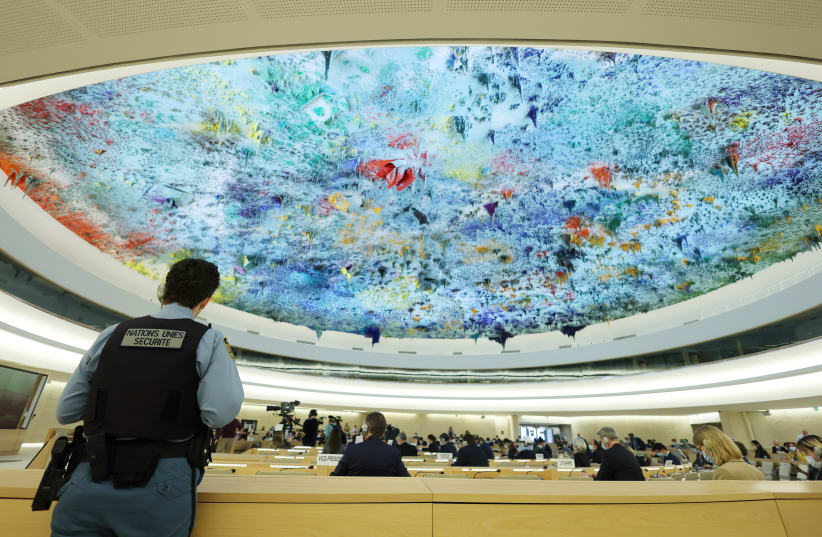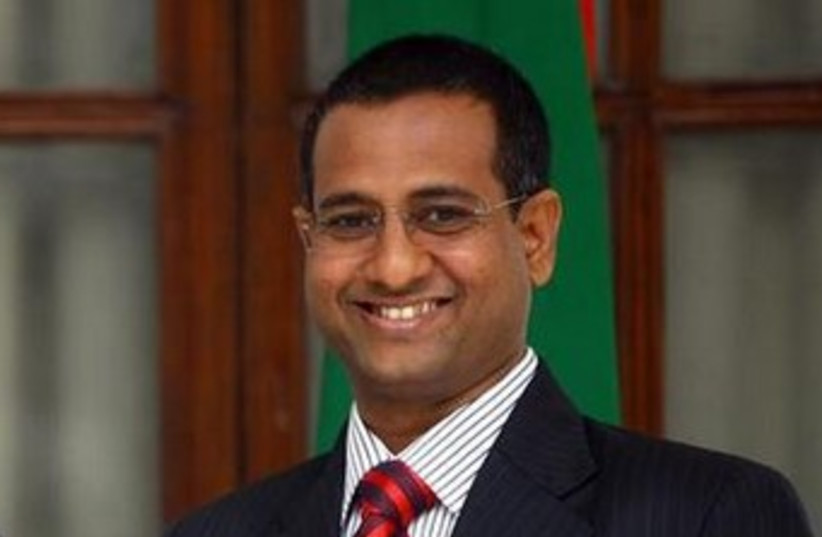The United Nations released a report by Ahmed Shaheed, the Special Rapporteur on freedom of religion or belief, called Action Plan to Combat Antisemitism, a four-page report that is a follow-up to an earlier novel report. Both reports are especially notable coming from an organization that has long been accused of displaying bias against Israel.
The first-of-its-kind report identifies antisemitism as a pressing and enduring challenge that governments, as well as social media giants, religious leaders, government officials, and others, should confront with urgency.
"As UN Secretary-General Antonio Guterres [stresses], antisemitism is not a problem for the Jewish community alone. Rather, antisemitism is a phenomenon that is toxic to democracy and mutual respect of citizens, that threatens all people’s human rights," it states.
The earlier "groundbreaking" report
The new report is a follow-up to a historic report presented to the UN General Assembly in 2019, also by Shaheed, on global antisemitism as a human rights issue. It raised rare criticism by a UN official regarding the Boycott, Divestment and Sanctions movement, writing that “international law recognizes boycotts as constituting legitimate forms of political expression and that non-violent expressions of support for boycotts are, as a general matter, legitimate speech that should be protected.”
His creation of the first stand-alone report on antisemitism by a UN leader was applauded by Jewish groups as groundbreaking.
Shaheed, a Maldivian diplomat who has served in his position since 2016, states in the report that trends in antisemitism since 2019 revealed many positive developments in combating antisemitism but enduring challenges are still present. Shaheed is an independent expert appointed by the UN Human Rights Council.
Notable concerns addressed by the Special Rapporteur
- "A lack of awareness in many countries of what antisemitism is, and particularly its contemporary manifestations, remains widespread;"
- "A growing number of countries have imposed restrictions on the important, centuries-old religiouspractices of shechita (kosher slaughter) and brit mila (male circumcision) that violate the right tofreedom of religion of members of their Jewish communities and could threaten the viability ofcontinued Jewish communal life in those countries;"
- "Monitors have documented a substantial increase in the prevalence of and public engagement withantisemitic content on several online platforms since 2019. While several social media and othertechnology companies have committed to responding to the prevalence of online antisemitism,the efforts that those platforms have taken to diminish its visibility – and not all are making such efforts – havethus far not been sufficient to stem its spread."
The report goes on to outline in detail how governments can adopt and communicate a zero-tolerance approach to antisemitic statements and incidents, establish national structures to ensure consistent attention to understanding and combating antisemitism and ensure all of society can recognize antisemitism and know the facts of the Holocaust.
The Jerusalem Post reached out to Israel's Ambassador to the UN Gilad Erdan's office for comment on the report but did not receive an immediate response.

